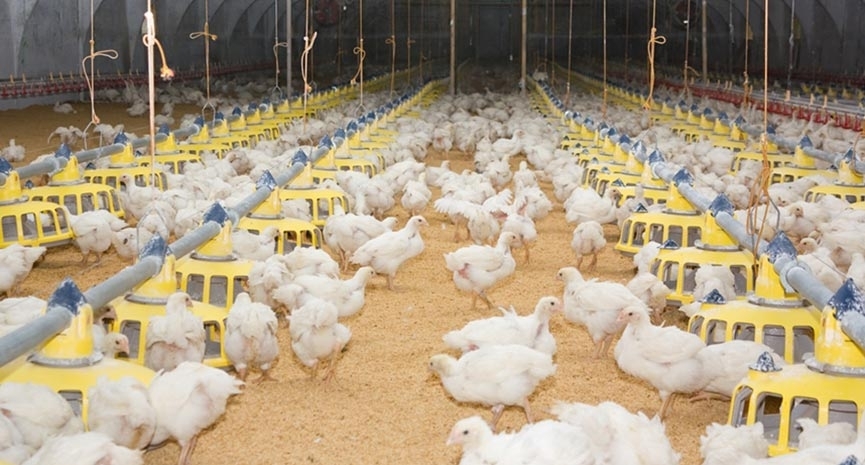South Africa introduces poultry sector masterplan to boost exports
The department of trade and industry of the Republic of South Africa is planning to launch a new poultry sector masterplan in the country to stimulate local demand, boost exports and protect the domestic chicken industry.

February 11, 2020: The department of trade and industry (DTI) of the Republic of South Africa is planning to launch a new poultry sector masterplan in the country to stimulate local demand, boost exports and protect the domestic chicken industry, as reported by Poultry World. This plan accommodates both large and small-scale farmers.
The main objective of the plan is to drive local demand and protecting the local industry, feed costs (primarily maize and soya), meeting safety and veterinary requirements, as well as compliance to boost exports, and transformation of the South African sector as a whole.
The poultry industry is the biggest agricultural industry in South Africa, employing in excess of 100,000 people throughout the value chain. There is room for growth. "To do this, we will invest about R1.5 billion ($10 million) in the processing facilities in the country. A further R1.6 billion ($11 billion) is to be invested in farming so that we can produce these chickens. This will enable us to increase our production by 10 to 20 percent by the end of 2022," said Izaak Breitenbach, general manager of the Broiler Organisation within the South African Poultry Association.
Large scale farmers, about 70, who collectively produce 12 million birds per cycle, have invested R35-40 million ($2.4-2.7 million) in their farms. The masterplan aims to double this figure by 2022. This will create the capacity for 50 more such farmers. Steps will be taken to focus on ownership throughout the value chain, and not just on farming. Approximately 25 percent of the biggest small-scale farmers will be identified and a business plan will be developed for each of them. Funding and support will be geared towards developing and growing them to become a bigger part of the value chain. "If we can grow our industry and make a significant impact on the whole value chain, from grain and poultry production to feed manufacturing, logistics, and retail, then as an industry we will be in a position to boost economic growth," said Breitenbach.
"The EU imports about 900,000 tonnes of breast meat and processed products. We would like to contribute to this," continued Breitenbach.
Another very important element of the masterplan is to stimulate local demand to supplant unfair trade imports. "We need protection against unfair trade, such as under-declaration of product whereby, for example, a product is bought in a foreign country for R20 ($1.37) per kilogramme and declared at R10 ($0.69) a kilogramme when it enters South Africa and so tariffs are paid only on R10 and not R20," Breitenbach noted, adding that the South African Minister of Economic Development, Ebrahim Patel, has announced that agreement has been reached with other BRIC countries to work together to weed out under-declaration and product declaration under the wrong tariff heading.
South Africa will be applying for further anti-dumping duties in 2020.
Export is another area addressed in South Africa's poultry masterplan. South Africa has tariff-free access to Europe but does not meet the sanitary and phyto-sanitary requirements of the European market, according to the South African Association of Meat Importers & Exporters. Europe is, therefore, closed to South Africa's chicken products. Exports to other countries are also small, accounting for only 2 percent of the total production. Closer to home, in Southern Africa, the current agreements are not to the benefit of the country. "We aim to increase the volume of exports to the Middle East, and cooked products to the EU," added Breitenbach.


